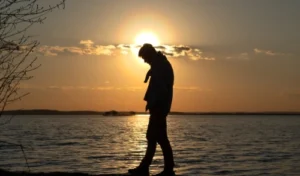
It is recommended to give your body time to recover without introducing additional substances that may complicate the healing process. Adequate hydration, rest, and proper nutrition can help your body recover more efficiently and minimize the duration and intensity of hangover symptoms, including blurry vision. To understand this potential connection, we blurry vision after drinking alcohol need to delve into the effects of alcohol on the body and the specific factors that contribute to blurry vision during a hangover. It’s worth noting that blurry vision during a hangover is not only caused by dehydration.
- Resveratrol finds its highest concentration in red wine, though it also exists in white wine.
- As you approach the end of the week, your hydration levels return to normal, and your eyes lubricate properly.
- You should understand the warning signs of eye troubles from alcohol abuse and what you can do to prevent or reverse the damage.
- In conclusion, blurry vision after a night of heavy drinking is typically a temporary symptom that resolves as the body metabolizes the alcohol.
Examples of eye symptoms to check with a doctor

This can result in blurred vision, loss of color vision, and even blindness. It is important to note that alcohol-induced optic neuropathy is more commonly seen in chronic heavy drinkers rather than occasional drinkers. Bloodshot eyes, dryness, or blurred and double vision are common side effects of https://ecosoberhouse.com/ drinking alcohol. However, there are long-term effects on eyesight from excessive alcohol consumption, potentially leading to permanent vision impairments, dry eyes, and optic neuropathy.
Your Recovery Journey Starts Here—In Paradise
You might notice that your vision becomes blurry or that you have difficulty focusing on objects. Long-term alcohol use can exacerbate dry eye symptoms, leading to chronic discomfort and potentially increasing the risk of corneal damage. Some research suggests that heavy drinking may increase the risk of developing AMD, a leading cause of vision loss in older adults. Undoing the effects of dehydration will also correct the problem of dry eye, which occurs when there aren’t enough tears to hydrate the eye ball.

What is the physiological explanation for experiencing blurry vision when hungover?
The optic atrophy may include irreversible blind spots (visual field loss) and poor color perception. Yes, long-term alcohol consumption can lead to damage to the optic nerve, which can result in vision loss and other eye-related complications. Alcohol consumption can lead to a range of long-term effects on the eyes, including vision impairment, increased risk of cataracts, and damage to the optic nerve. You may find that your eyes do not track moving objects as smoothly as they usually would, leading to a disjointed perception of motion. This impairment can be particularly dangerous when driving or engaging in activities that require precise visual judgment. A hangover can also affect your eyesight, leading to light sensitivity, dry eyes, and headaches that make it difficult to focus.
Vascular Changes in the Eyes
Early stages are often asymptomatic, but as the disease progresses, peripheral vision may be lost, eventually leading to blindness if left untreated. AMD is a progressive eye disease that can lead to significant vision loss, particularly in the center of your visual field. Excessive alcohol use can harm the macula – the part of the retina responsible for sharp, central vision. Studies suggest that the toxic effects of alcohol on the retina and the macula could accelerate the degeneration process, impacting overall visual function. It is important to note that the effects of alcohol on vision can vary depending on Halfway house the individual. Factors such as the amount of alcohol consumed, the frequency of consumption, and the individual’s overall health can all influence how alcohol affects the eyes.

